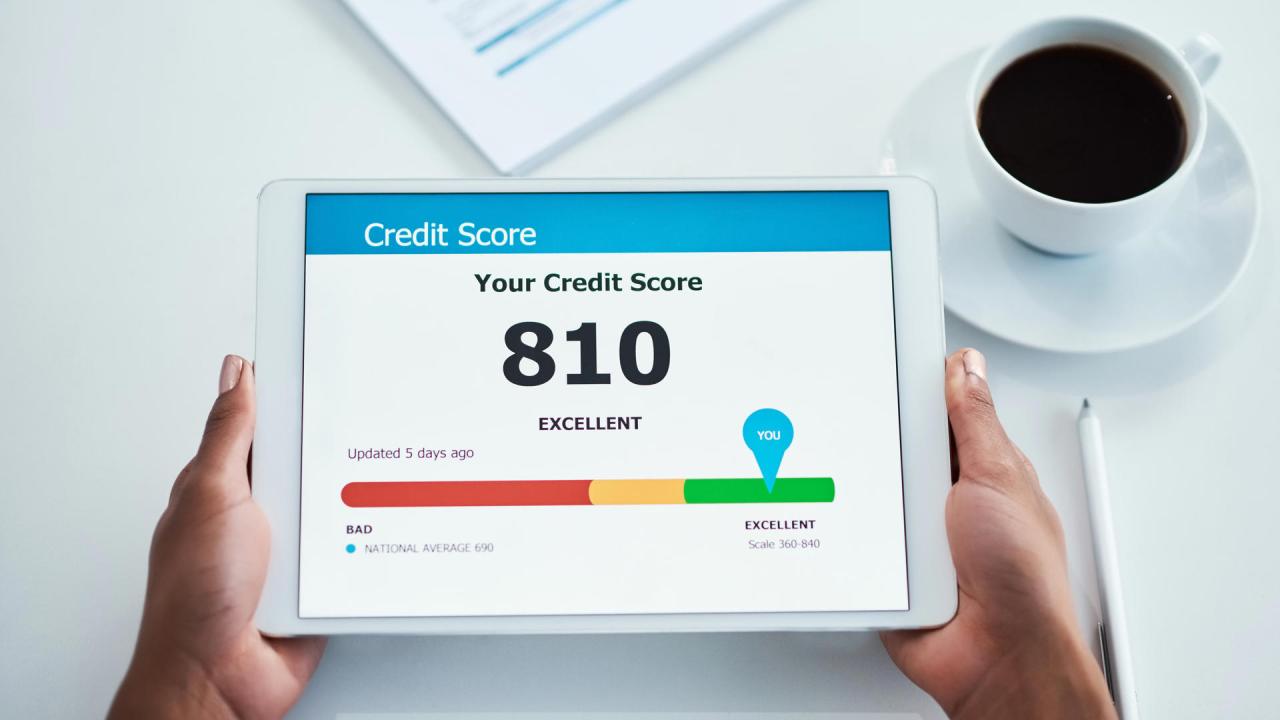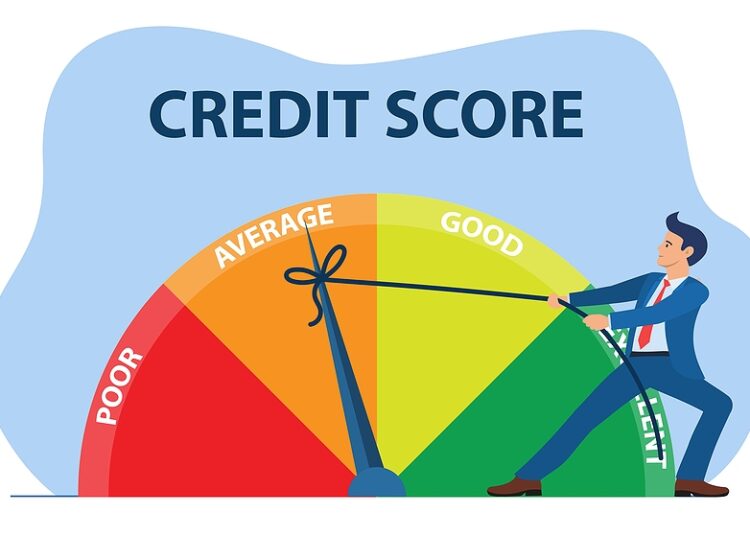A strong credit score is more than just a number; it’s a vital component of your financial health, opening doors to better loan rates, easier approvals, and even lower insurance premiums. In today’s interconnected financial world, where everything from renting an apartment to getting a mobile phone contract can depend on your creditworthiness, mastering the art of building and boosting your credit score is essential. This comprehensive guide will delve deep into the mechanics of credit scores, reveal actionable tips to improve yours, and equip you with the knowledge to navigate the credit landscape strategically. Whether you’re starting from scratch, recovering from past mistakes, or simply aiming for financial excellence, these insights will empower your journey.
Understanding Your Credit Score

Before you can boost your credit score, you need to understand what it is, why it matters, and how it’s calculated. This foundational knowledge is key to making informed decisions.
A. What is a Credit Score?
A credit score is a numerical representation of your creditworthiness, essentially a lender’s assessment of how likely you are to repay borrowed money. It’s generated by credit bureaus based on the information in your credit report. In countries like Indonesia, credit information is primarily managed by Sistem Layanan Informasi Keuangan (SLIK), operated by the Otoritas Jasa Keuangan (OJK), which replaced the previous BI Checking system. While a single “credit score” like FICO in the US isn’t universally used across all lenders in Indonesia, the underlying principles of good payment behavior and debt management tracked by SLIK remain crucial. A good track record on SLIK will significantly impact your ability to secure loans, credit cards, and even mortgages (KPR).
B. Why Your Credit Score Matters
Your credit score (or credit history as reflected in SLIK) impacts numerous aspects of your financial life:
A. Loan Approvals: A strong score increases your chances of getting approved for loans, whether it’s a personal loan, an auto loan, or a mortgage (KPR/KPA). Banks and financial institutions rely heavily on this data to assess risk.
B. Interest Rates: Lenders offer lower interest rates to borrowers with higher scores because they are deemed less risky. This can save you thousands or even millions over the life of a loan. For example, a difference of just 0.5% on a long-term KPR can translate to substantial savings.
C. Credit Card Limits and Benefits: A good score typically qualifies you for higher credit limits, better rewards programs, and more premium credit cards.
D. Rental Applications: Landlords often check credit reports to assess a potential tenant’s financial responsibility.
E. Insurance Premiums: In some countries, credit scores can influence insurance premiums (e.g., auto or home insurance). While less direct in Indonesia, a history of financial stability can be viewed favorably.
F. Utility Hook-ups and Mobile Contracts: Some utility companies or mobile phone providers might check credit to determine if a deposit is required.
C. Key Factors Influencing Your Score
While the exact algorithms used by credit bureaus are proprietary, the main factors that contribute to your score are universally understood:
A. Payment History (Approx. 35%): This is the most critical factor. Paying your bills on time, every time, has the most significant positive impact. Late payments, defaults, bankruptcies, or collection accounts will severely hurt your score.
B. Amounts Owed / Credit Utilization (Approx. 30%): This refers to the amount of credit you’re using compared to your total available credit. Keeping your credit utilization ratio low (ideally below 30%) signals responsible credit management. For example, if you have a total credit limit of Rp10,000,000, try to keep your outstanding balance below Rp3,000,000.
C. Length of Credit History (Approx. 15%): The longer your credit accounts have been open and in good standing, the better. This demonstrates a consistent history of responsible borrowing. Don’t close old credit accounts unnecessarily, especially if they have a good payment history.
D. New Credit (Approx. 10%): Opening multiple new credit accounts in a short period can be seen as risky behavior and may temporarily lower your score. Each “hard inquiry” for new credit can have a minor, temporary negative impact.
E. Credit Mix (Approx. 10%): Having a healthy mix of different types of credit (e.g., credit cards, installment loans like KPR or auto loans) can show that you can manage various forms of debt responsibly.
Essential Tips for Boosting Your Credit Score
Now that you understand the mechanics, let’s dive into actionable strategies to improve your credit score. Consistency and discipline are key.
A. Prioritize On-Time Payments
This is the single most impactful action you can take.
A. Automate Payments: Set up automatic payments for all your credit cards, loans, and bills to ensure you never miss a due date. Even paying the minimum on time is better than a late payment.
B. Set Reminders: Use calendar alerts, mobile app notifications, or physical reminders for payment due dates.
C. Pay More Than the Minimum (if possible): While minimum payments keep your account in good standing, paying more reduces your principal faster, which then lowers your credit utilization ratio over time.
D. Address Missed Payments Immediately: If you miss a payment, pay it as soon as possible. While a 30-day late payment will be reported, paying it before 30 days usually prevents it from being reported to credit bureaus.
B. Reduce Your Credit Utilization Ratio
Keeping this ratio low is crucial for a healthy score.
A. Pay Down Balances: Focus on paying down your credit card balances, especially on cards with high utilization. The lower your balance relative to your limit, the better.
B. Pay Multiple Times a Month: If you use your credit card frequently, consider making smaller payments throughout the month instead of one large payment at the end. This keeps your reported balance low.
C. Increase Credit Limits (with Caution): You can ask your credit card company for a credit limit increase. If approved, and you don’t increase your spending, this will immediately lower your utilization ratio. However, only do this if you have the discipline not to spend the additional available credit.
D. Avoid Maxing Out Cards: Never use more than 30% of your available credit on any single card or across all cards. Ideally, aim for below 10%.
C. Maintain a Long Credit History
Time is your friend when it comes to credit history.
A. Don’t Close Old Accounts: Resist the urge to close old credit card accounts, especially those with no annual fees and a good payment history. Closing them reduces your overall available credit and shortens your average credit age.
B. Keep Active Accounts Open: Even if you don’t use an old card often, make a small purchase occasionally (e.g., a recurring streaming service) and pay it off immediately to keep the account active.
D. Be Strategic with New Credit
Applying for new credit should be a thoughtful decision.
A. Limit New Applications: Only apply for credit when you genuinely need it (e.g., a mortgage, a car loan). Avoid opening multiple credit cards just for sign-up bonuses in a short period.
B. Space Out Applications: If you do need new credit, try to space out your applications over several months. Each hard inquiry can cause a small, temporary dip in your score.
C. Understand Different Loan Types: A mix of revolving credit (credit cards) and installment loans (mortgage, auto loan) can positively impact your score by demonstrating diverse credit management ability.
E. Monitor Your Credit Report Regularly
Errors on your credit report can unfairly damage your score.
A. Obtain Your Report: In Indonesia, you can request your SLIK report (Individual Debtor Information) from OJK. It’s advisable to do this periodically, perhaps once a year, to review your credit history.
B. Check for Errors: Scrutinize the report for inaccuracies, such as:
- Incorrect personal information: Wrong name, address, or employment.
- Accounts you don’t recognize: Potential identity theft.
- Incorrect payment status: A payment listed as late when it was on time.
- Incorrect account balances or credit limits.
- Duplicate accounts.
C. Dispute Inaccuracies Promptly: If you find errors, dispute them immediately with the relevant credit bureau (or OJK in Indonesia) and the creditor. Provide documentation to support your claim. Timely dispute resolution can help correct your credit history.
Advanced Strategies for Credit Score Optimization

Once you’ve mastered the basics, consider these more advanced tactics to further fine-tune your credit score.
A. Become an Authorized User (for beginners)
If you have little to no credit history, becoming an authorized user on someone else’s credit card can be a quick boost.
A. Choose Wisely: Only do this with someone who has excellent credit history and a low utilization ratio (e.g., a responsible parent or spouse). Their good habits will reflect positively on your report.
B. Ensure Responsible Use: Make sure the primary cardholder continues to make on-time payments and keeps the utilization low. You are not legally responsible for the debt, but their mistakes can affect your score.
C. Start Your Own Credit: This is a temporary measure. Eventually, you’ll need to open your own credit accounts to build your independent credit profile.
B. Consider a Secured Credit Card
For individuals with poor or no credit, a secured credit card can be an excellent stepping stone.
A. How it Works: You deposit money with the bank (e.g., Rp5,000,000), and that deposit becomes your credit limit. This deposit secures the credit line.
B. Builds Credit: You use the card like a regular credit card, making purchases and paying your bill on time. The bank reports your payment activity to credit bureaus, helping you build a positive history.
C. Transition to Unsecured: After a period of responsible use (e.g., 6-12 months), the bank may convert your secured card to an unsecured one and return your deposit.
C. Debt Consolidation (with Caution)
While primarily a debt management strategy, debt consolidation can indirectly help your credit score, but it comes with risks.
A. Lower Interest Rates: Consolidating multiple high-interest debts into one loan with a lower interest rate can make payments more manageable, reducing the likelihood of missed payments.
B. Improved Utilization: If you consolidate credit card debt into a personal loan, your credit card utilization ratio will drop significantly, which can immediately boost your score.
C. Risks: The main risk is that you free up your credit cards and then rack up new debt. If this happens, you’ll be in a worse financial position. Only consolidate if you’re committed to not using the emptied credit lines.
D. Negotiate with Creditors for Debt Settlement (if struggling)
If you’re facing severe financial hardship and cannot make payments, try to negotiate with your creditors for a debt settlement.
A. Potential Impact: Settling debt for less than the full amount will likely be reported negatively on your credit report, but it’s often better than a bankruptcy or continued charge-offs.
B. Professional Help: Consider engaging a reputable credit counseling agency or a debt settlement company (research carefully, as some are scams) to help you negotiate.
C. Understand Consequences: Be aware that settled accounts will remain on your credit report for several years (e.g., 7 years), impacting your ability to get new credit. This is usually a last resort before bankruptcy.
E. The Power of Patience and Consistency
Credit score improvement is a marathon, not a sprint.
A. Long-Term Game: It takes time to build a solid credit history. Don’t expect dramatic changes overnight. Consistent responsible behavior over months and years is what truly moves the needle.
B. Avoid Quick Fixes: Be wary of “credit repair” companies that promise instant fixes or advise you to create a new credit identity. These are often fraudulent and can cause more harm than good.
C. Continuous Monitoring: Even after your score improves, continue to monitor your credit report and maintain good financial habits.
The Psychological Aspect of Credit Management
Building a good credit score isn’t just about numbers; it’s also about cultivating responsible financial habits and a disciplined mindset.
A. Financial Discipline and Self-Control
A strong credit score is a reflection of financial discipline. It requires self-control to resist overspending, adhere to a budget, and prioritize debt repayment. Developing these habits is beneficial far beyond just your credit score; it’s foundational to overall financial well-being.
B. Understanding Your Spending Triggers
Many people accumulate debt due to emotional spending, impulsive purchases, or keeping up with others. Identifying your personal spending triggers (e.g., stress, boredom, social pressure, advertising) allows you to address the root causes of overspending and build healthier financial habits.
C. Setting Clear Financial Goals
Having clear financial goals (e.g., buying a home, starting a business, early retirement) provides powerful motivation to manage your credit responsibly. When you see how a good credit score directly supports these goals, the discipline becomes easier.
D. Education and Empowerment
The more you understand about credit, debt, and personal finance, the more empowered you become. Continuous learning about these topics will help you make smarter decisions, avoid common pitfalls, and maintain a healthy financial trajectory. OJK in Indonesia provides educational resources for financial literacy, which are highly beneficial.
E. Celebrating Milestones
The journey to an excellent credit score can be long. Celebrate small milestones along the way (e.g., paying off a credit card, reaching a certain utilization ratio). This positive reinforcement can help maintain motivation and momentum.
Conclusion
Your credit score is a powerful financial tool that influences countless aspects of your life. By understanding how it’s calculated and diligently applying proven strategies, you can take control of your financial destiny and unlock a world of opportunities.
Prioritizing on-time payments, meticulously managing your credit utilization, fostering a long and positive credit history, and being strategic with new credit applications are the pillars of excellent credit. Furthermore, regularly monitoring your SLIK report (Credit Information Debtor) in Indonesia for accuracy and immediately disputing any errors is a crucial proactive measure.
Remember, building a strong credit score is a journey of consistency, discipline, and patience. It reflects your commitment to financial responsibility and opens doors to better financial products and greater peace of mind. Start today, apply these tips consistently, and watch as your credit score transforms into a powerful asset, empowering your journey towards lasting financial prosperity.












